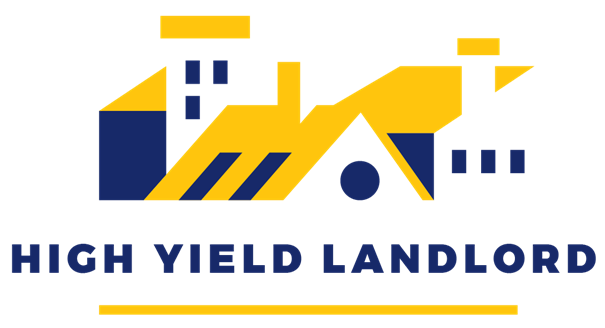Interview With UMH Properties - REITweek Conference Part 5
Please note that this is a free article of High Yield Landlord. If you find it valuable, consider joining our service for a 2-week free trial. You'll gain immediate access to my entire REIT portfolio, real-time trade alerts, exclusive REIT CEO interviews, and much more.
Interview With UMH Properties - REITweek Conference Part 5
Earlier this month, I attended the NAREIT REITweek conference in NYC and got to meet with many REIT management teams. We already posted the takeaways of our interviews with VICI, BSR, VICI, and FPI.
Over the coming weeks, I will share the following interviews with members:
Interview with STAG Industrial (STAG)
Takeaways from roundtables: ONL, AHH, O, REG, GMRE, UNIT (1/2)
Property Tours with the Management of RCI Hospitality (RICK)
Based on these latest findings, we also expect to announce a few transactions so stay tuned for Trade Alerts.
Today, we share the takeaways of my meeting with UMH Properties (UMH):
Interview With The CEO and CFO of UMH Properties (UMH):
UMH is our largest manufactured housing REIT investment. We like it because:
The company has a unique strategy of acquiring under-managed manufactured housing communities and then improving them to create value. It buys communities with low occupancy rates and rents, and within a few years, it will improve its infrastructure, and through better property management and marketing, it will materially bump up the property's NOI - earning a very attractive return over a multi-year time period.
Today, the REIT has a lot of vacant capacity within its portfolio that should allow it to grow NOI without requiring much additional capital.
Its current rents remain affordable and UMH is able to hike rents by about 5% per year on average. Since most of its lots are leased without the home, its capex is limited and the tenants are highly dependent on UMH's lots - reducing the risk of vacancy.
UMH is now starting to work with external capital to implement its strategy in a way that's less capital intensive - mitigating the dilution of new acquisitions.
Finally, despite having a long track record of market outperformance and a pretty decent balance sheet, UMH is priced at a large discount to peers and the broader REIT market. As of right now, we estimate that it is priced at a roughly 30% discount to NAV and it offers a 5.3% dividend yield.
I got to sit down with the company's CEO, Sam Landy, and CFO, Anna Chew, to talk about various topics, and below, I share all my main takeaways and conclusion.
My Takeaways From The Interview:
The CEO explains that they have managed to grow their FFO per share by 29% over the past 5 years and that's despite having relatively poor access to capital and going through the pandemic and recent surge in interest rates. He believes that the next 5 years will look even stronger as they continue to grow rents, add more homes to their existing communities, and acquire more communities with not just their own capital, but also with that other investors to earn additional fee income. The rent growth alone should move the needle by quite a bit as they expect to grow rents in the mid-single-digit rate annually with limited capex required.
Today, the REIT has a lot of vacant lots in its existing communities on which it can add homes to grow its own portfolio of manufactured homes. These investments are very attractive as they earn a ~10% yield on the first year once they are rented out. This means that UMH could raise equity even at today's discounted share price and still make highly accretive investments.
But they will also continue to acquire new value-add communities and this will likely lead to more bumpiness to their per share results. They put a lot of emphasis on that their strategy is different from their peers. They are not just buying stabilized communities and trying to play the spread game on year 1. They are acquiring communities that produce little income today and are often dilutive on year 1. But as they fix them up and bump up their NOI, these acquisitions turn accretive within a few years and create a lot of value for shareholders. That's how they have always grown and it has been successful on a per share basis over long time periods, but it requires patience.
I tried to push them on the idea of issuing stock at a discount to NAV to make new investments. This is typically a big no-no in the REIT industry, but they made a pretty good counterpoint. First off, despite issuing stock at these discounted levels, they are still earning a healthy spread when investing in new rental homes, which yield about 10%. Secondly, they are using this depressed equity to buy under-managed manufactured housing communities at depressed valuations. So they are not issuing equity at 70 cents to buy a property at $1. They are issuing equity at a discount to buy a property at an equally large or greater discount with a clear path to creating additional value within a few years. I am still not a fan of this approach, but it is not nearly as bad as issuing stock at a discount to buy a stabilized property at fair market value.
Their recent deal with Nuveen should allow them to target larger deals that they couldn't have targeted in the past because of how dilutive they would have been on day 1. The partnership with Nuveen will give them more flexibility, diversify their capital sources, and generate fee income.
While most of this was positive to the thesis, I still came out a bit disappointed out of this meeting because of one thing: the management's complete refusal to listen to feedback. A few times I tried to question the management on their capital allocation policies and they made it clear to me that they will manage the company their way and couldn't care about having a proper discussion. As an example, I pointed out that perhaps the market is discounting UMH because of its securities portfolio. While not significant at just 2% of assets, it reflects poorly on their capital allocation policies and that's enough of a reason for many investors to avoid their stock. No one wants a REIT to play the role of a "hedge fund manager". In that sense, selling this small portfolio could help the remaining 98% of the business by reducing its cost of capital. But no, they are strongly opposed to this idea and will not even properly listen to your arguments. They run UMH as a family business and this seems to blind their judgment at times. They are great operators of manufactured housing communities, but I was unimpressed by their remarks on this specific topic and it left me more uncertain about my investment in the company.
My Conclusion
We are downgrading UMH from a Strong Buy to a Buy rating.
The value is too good to ignore at these prices. UMH dropped alongside the rest of the market and this drop was exaggerated by the bumpiness of their business model.
But UMH is now scaling up its rental home portfolio, which should help their per share results in the near term, potentially leading to some bumpiness to the upside for once.
I am bullish on the next few years but I may not hold this one for the long run. I don't want to have any uncertainty about the management quality of my long-term core holdings and I unfortunately can't say that about UMH.
In the coming weeks, we will share with members the following other reports from the recent conference:
Interview with STAG Industrial (STAG)
Takeaways from roundtables: ONL, AHH, O, REG, GMRE, UNIT (1/2)
Property Tours and Management Meetings with RCI Hospitality (RICK)
Based on these latest findings, we also expect to announce a few transactions so stay tuned for Trade Alerts.
Finally, please note that this is a free article from High Yield Landlord. If you found it valuable, consider joining our service for a 2-week free trial. You'll gain immediate access to my entire REIT portfolio, real-time trade alerts, exclusive REIT CEO interviews, and much more. We are the largest and highest-rated REIT investment newsletter online, with over 2,000 paid members and more than 500 five-star reviews.
We spend 1000s of hours and over $100,000 per year researching the market for the most profitable investment opportunities and share the results with you at a tiny fraction of the cost.
Get started today - the first 2 weeks are on us:
Sincerely,
Jussi Askola
Analyst's Disclosure: I/we have a beneficial long position in the shares of all companies held in the CORE PORTFOLIO, RETIREMENT PORTFOLIO, and INTERNATIONAL PORTFOLIO either through stock ownership, options, or other derivatives. High Yield Landlord® ('HYL') is managed by Leonberg Research, a subsidiary of Leonberg Capital. All rights are reserved. No recommendation or advice is being given as to whether any investment is suitable for a particular investor. The newsletter is impersonal and subscribers/readers should not make any investment decision without conducting their own due diligence, and consulting their financial advisor about their specific situation. The information is obtained from sources believed to be reliable, but its accuracy cannot be guaranteed. The opinions expressed are those of the publisher and are subject to change without notice. We are a team of five analysts, each contributing distinct perspectives. Nonetheless, Jussi Askola, the leader of the service, is responsible for making the final investment decisions and overseeing the portfolio. We do not always agree with each other and an investment by Jussi should not be taken as an endorsement by other authors. Past performance is no guarantee of future results. Our portfolio performance data is provided by Interactive Brokers and believed to be accurate but its accuracy has not been audited and cannot be guaranteed. Our portfolio may not be perfectly comparable to the relevant index. It is more concentrated and may at times use margin and/or invest in companies that are not typically included in REIT indexes. Finally, High Yield Landlord is not a licensed securities dealer, broker, US investment adviser, or investment bank. We simply share research on the REIT sector.








